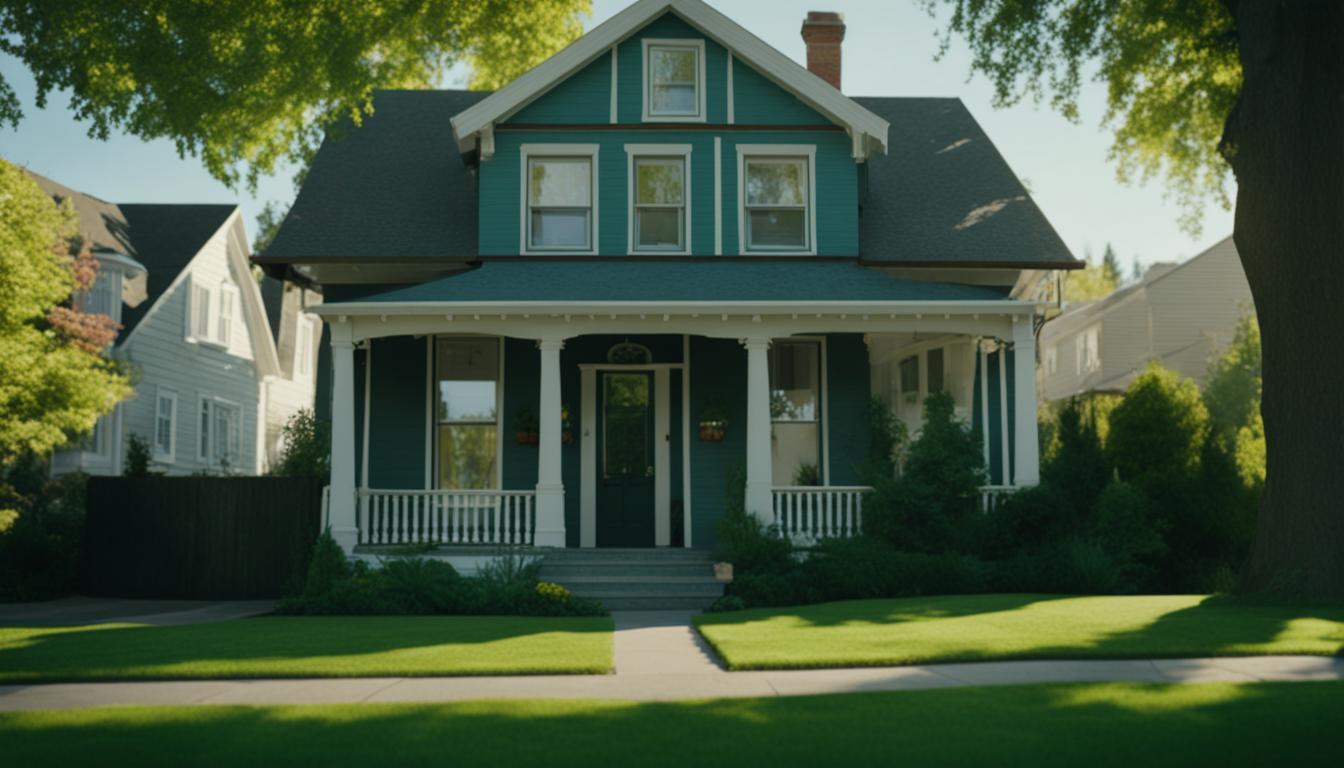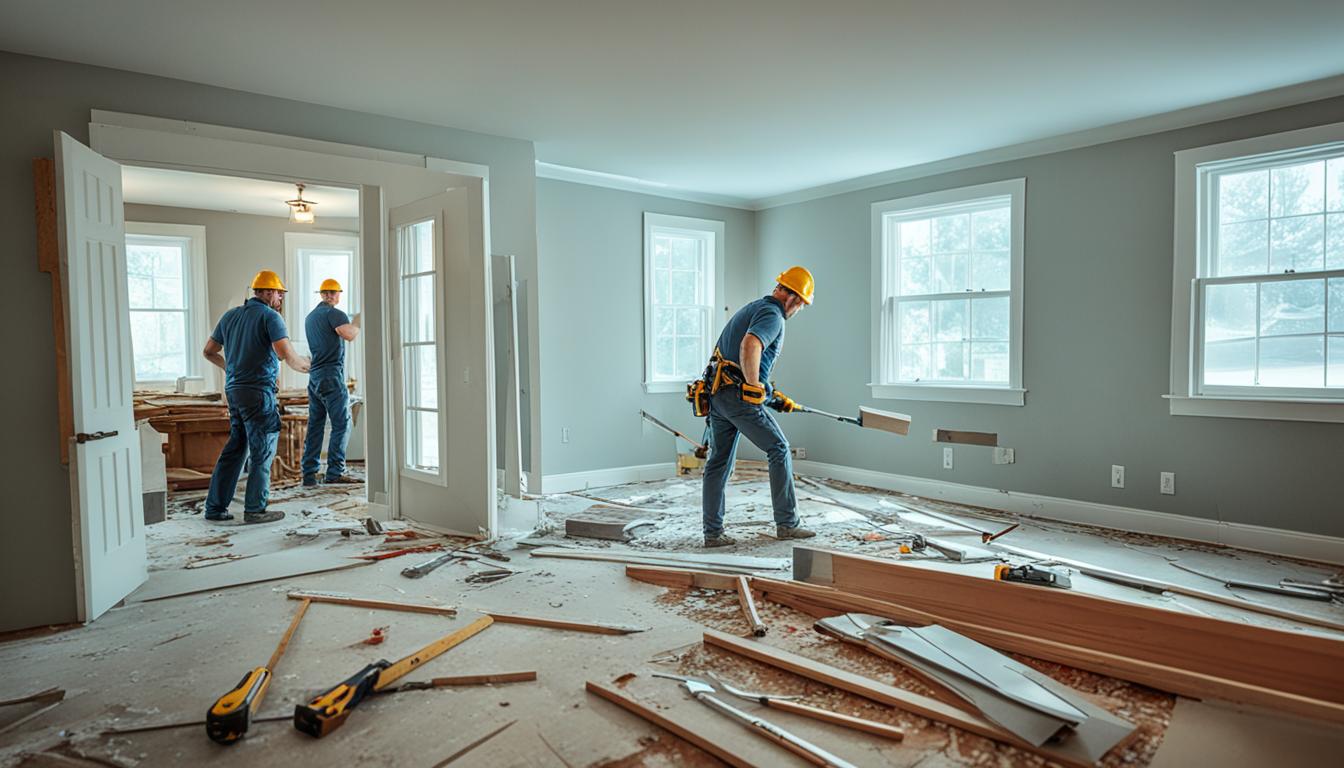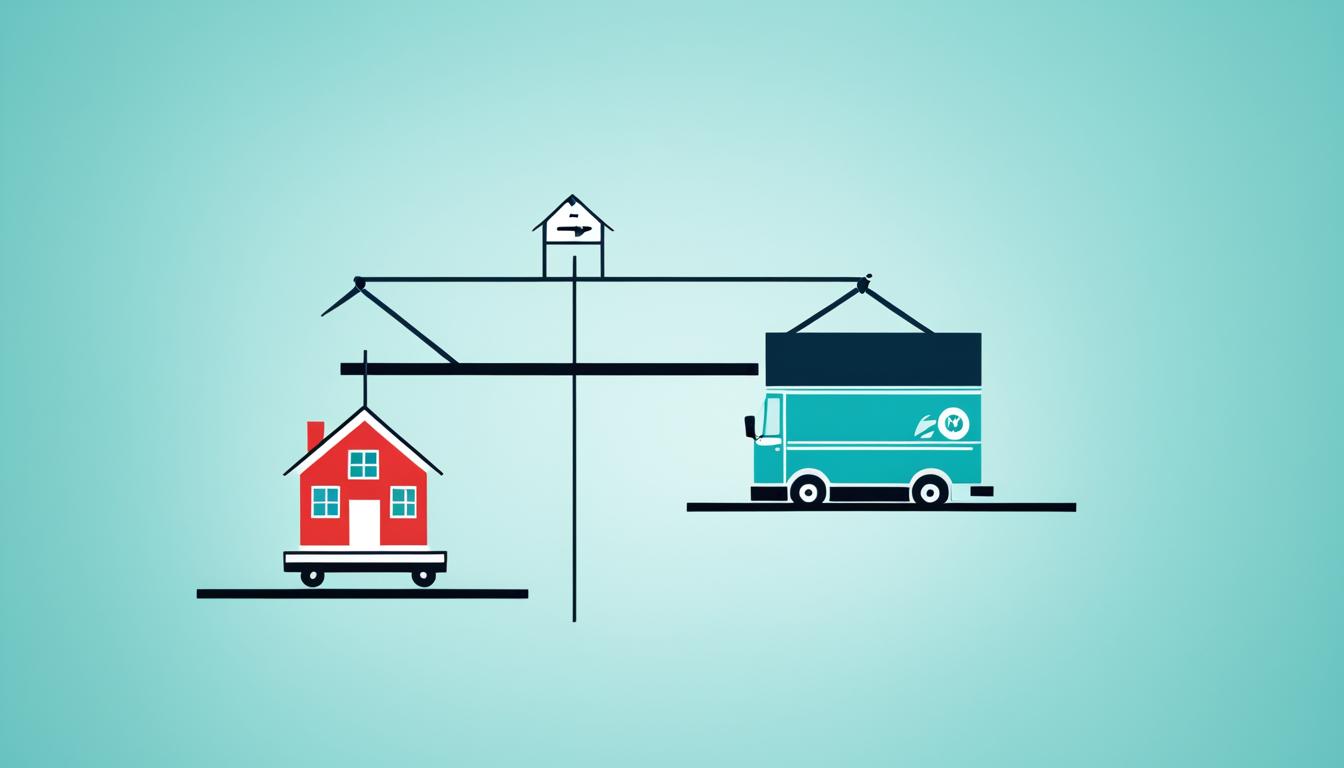
Welcome, Calgary homeowners! If you've found yourself pondering the age-old question of whether to
renovate your current Calgary home or
relocate to a new one, you're in the right place. Making this decision is not always easy, but with the right guidance, you can confidently choose the path that best suits your needs and aspirations.Our comprehensive guide aims to help you navigate this decision-making process by providing valuable insights and practical advice. We understand that every homeowner's situation is unique, and there is no one-size-fits-all answer. That's why we've compiled a range of factors for you to consider before making your choice.Is your
current home in need of a refresh? Or are you yearning for a fresh start elsewhere? Our guide will delve into the key considerations, such as the condition of your
current home, the cost implications of renovating versus moving, and the impact on your lifestyle and future plans.
Key Takeaways:
- Evaluating the condition of your current home is crucial before deciding whether to renovate or relocate.
- Assess the costs involved in both options, including renovations, moving expenses, and potential return on investment.
- Weigh the pros and cons of renovating, such as customization benefits versus construction disruption.
- Consider the advantages and disadvantages of relocating, such as finding a better fit and the challenges of selling and buying a new home.
- Make an informed decision by researching the local market, consulting professionals, and aligning with your budget and needs.
When faced with the decision of whether to
renovate your current home or
move to a new one, there are several important factors you should consider. Making the right decision requires careful evaluation of various aspects that will impact your living situation and future plans. Here are some key
things to consider:
Evaluate the Condition of Your Current Home
Before deciding
whether to renovate or
relocate, take a close look at the current condition of your home. Assess its structural integrity, the age of key systems such as plumbing and electrical, and any existing issues that may require immediate attention. Understanding the state of your current home will help you make an informed decision about the feasibility of renovations and the potential costs involved.
Consider Your Desired Improvements
Think about the specific improvements you want to make to your home. Are you looking to update the kitchen, add an extra bedroom, or create a more open floor plan? Consider whether these desired renovations can be achieved within the existing space and layout of your home. You may also want to evaluate whether the desired improvements align with your long-term goals and lifestyle needs.
Weigh the Cost of Renovations Against Moving
One of the most crucial factors to consider is the cost of renovations versus the
cost of moving. Create a budget for the renovations you have in mind and compare it to the estimated cost of purchasing a new home. Remember to factor in additional expenses such as
moving costs, closing costs, and any necessary repairs or upgrades for the new home. Comparing these costs will help you determine which option is more financially viable for you.
Assess the Impact on Your Lifestyle and Future Plans
Think about how the decision to
renovate or relocate will impact your lifestyle and future plans. Consider factors such as the duration of the
renovation process, the inconvenience of living in a construction zone, and the potential disruption to your daily routines. Additionally, evaluate whether your current home meets your long-term needs or if a new home would better accommodate your growing family or changing lifestyle.Remember, the decision to
renovate or relocate is a highly personal one that depends on your unique circumstances. Take the time to carefully consider these important factors before making your decision.

When considering whether to
renovate your current home or relocate to a new one, it's essential to have a deep understanding of your current home. By assessing the structure, layout, and overall condition of your
existing home, you can determine its potential for
renovation and make an informed decision.Renovating your current home has several benefits. Firstly, it allows you to customize and upgrade your space according to your preferences and lifestyle. Whether you want to remodel the kitchen, add an extra bedroom, or create an open-concept living area, renovating gives you the opportunity to transform your home into your dream space.However, renovating an
existing home also comes with a few drawbacks. It's crucial to evaluate the structural integrity of your home and identify any underlying issues that may require extensive repairs. Outdated wiring or plumbing systems, foundation problems, or structural deficiencies can significantly impact the feasibility of a
renovation project.To determine whether renovating is a viable option, it's essential to consider your budget and goals. Renovating can be a
cost-effective solution compared to buying a new home, especially if you love your current location and have a strong emotional attachment to your current home.Ultimately, understanding your current home is the first step in making an informed decision. Assessing its potential for renovation, weighing the benefits and drawbacks, and considering your budget and goals will guide you towards the right path.
Key Considerations:
- Assess the structure and overall condition of your current home
- Evaluate the potential for customization and upgrades
- Identify any underlying issues that may require extensive repairs
- Weigh the benefits of renovating against the drawbacks
- Consider your budget and long-term goals

When deciding
whether to renovate or relocate, one of the most crucial factors to consider is the cost. Assessing the associated expenses of both options can help you make a financially informed decision that aligns with your specific circumstances.To better understand the cost implications, let's explore the various elements involved in both renovating and moving.
Renovating Costs
Renovating your current home offers the possibility of transforming it into your dream living space without the hassle of selling and buying a new property. However, it's important to consider the following renovation costs:
- Materials and Labor: The cost of materials, such as flooring, fixtures, and appliances, can quickly add up. Additionally, factoring in the cost of hiring professionals, like contractors and designers, is essential.
- Permits and Inspections: Depending on the scale of your renovation project, you may need to obtain permits and undergo inspections, which come with their own costs.
- Unexpected Expenses: It's wise to set aside a contingency budget to account for any unforeseen issues or necessary modifications during the renovation process.
By thoroughly researching and obtaining quotes from different contractors, you can estimate the total cost of renovating your home.
Moving Costs
If you decide to relocate, it's crucial to account for the costs associated with selling your current home and buying a new one. Consider the following moving expenses:
- Home Sale Expenses: Selling your current home typically involves costs such as real estate agent commissions, staging, and repairs or renovations to increase market appeal.
- Mortgage Fees: If you have a mortgage on your current home, there may be penalties or fees associated with paying it off early.
- Closing Costs: When purchasing a new home, closing costs, including legal fees, title insurance, and property taxes, need to be factored into your budget.
- Moving Services: Hiring professional movers or renting a moving truck may be necessary, adding to your overall moving expenses.
It's important to carefully calculate these costs to get a clear understanding of the financial implications of relocating.
Assessing Cost-effectiveness
Assessing the cost-effectiveness of renovating versus moving involves considering both short-term and long-term financial factors. It's essential to evaluate:
- The current value of your home: If your home has appreciated significantly and you have substantial equity, renovating may be a more cost-effective option.
- The cost of renovations: Compare the cost of necessary renovations to the potential increase in the value of your home. A kitchen remodel, for example, can significantly enhance property value.
- The cost of moving: Determine if the expenses associated with selling your home and purchasing a new one outweigh the cost of renovating.
Remember, the cost-effectiveness of renovating or moving will vary depending on your unique financial situation and real estate
market conditions.Cost ConsiderationsRenovatingMovingMaterials and LaborCost of materials and hiring professionalsN/APermits and InspectionsCost of obtaining permits and inspectionsN/AUnexpected ExpensesContingency budget for unforeseen issuesN/AHome Sale ExpensesN/ACost of real estate agent commissions, staging, and repairsMortgage FeesN/APenalties or fees for paying off mortgage earlyClosing CostsN/ALegal fees, title insurance, and property taxesMoving ServicesN/ACost of professional movers or rental truck

If you're considering a
home renovation, it's important to
weigh the pros and cons before making a decision. Renovating your home can bring several benefits and opportunities for customization, but it also comes with potential challenges and drawbacks.
Advantages of Renovation
- Increased Comfort: Renovating your home allows you to update and improve its functionality, creating a more comfortable living space that meets your specific needs.
- Customization: With a home renovation, you have the freedom to customize your space to reflect your personal style and preferences. Whether it's a kitchen remodel, bathroom upgrade, or adding an extra room, you can create a home that truly feels like your own.
- Potential Return on Investment: Renovating your home can potentially increase its value, providing a return on investment if you decide to sell in the future. This is especially true for kitchen and bathroom renovations, which are known to have a high return on investment.
Disadvantages of Renovation
- Construction Disruption: Renovating your home can be disruptive and messy, especially if you're doing major renovations that require temporary relocation or limit your access to certain areas of your home.
- Potential Budget Overruns: Renovations can often exceed your initial budget, especially if unexpected issues arise during the construction process. It's important to plan and budget accordingly to avoid financial strain.
- Time and Effort: Renovating a home requires time and effort to plan, coordinate, and oversee the construction process. It's essential to be prepared for the time commitment and potential stress that comes with managing a renovation project.
Renovating your home can be an exciting and rewarding experience, but it's important to carefully consider the
pros and cons before making a decision. Whether you're looking to update your kitchen, add more space, or enhance your home's overall functionality, evaluating the advantages and drawbacks of renovation can help you make an informed choice.Advantages of RenovationDisadvantages of RenovationIncreased comfortConstruction disruptionCustomizationPotential budget overrunsPotential return on investmentTime and effort

When considering whether to relocate, it's essential to
weigh the pros and cons carefully. Moving to a new home can offer exciting opportunities for a fresh start, but it also comes with its challenges. Here are some factors to consider:
Advantages of Relocating
- Finding a New Home that Fits Your Needs: Relocating gives you the opportunity to search for a house that better aligns with your needs and preferences. From larger bedrooms to a more spacious backyard, you can discover a home that suits your lifestyle.
- A Fresh Start in a New Neighborhood: Moving to a new neighborhood can bring new experiences, friends, and community connections. It allows you to explore different amenities, schools, and recreational opportunities that may not be available in your current area.
Disadvantages of Relocating
- Challenges of Selling Your Home: Selling your current home can be a complex process. It involves finding the right buyer, setting a competitive price, and dealing with potential negotiations. It may take time to sell your home, affecting your relocation plans.
- Purchasing a New Home: Buying a new house comes with its own set of considerations, such as finding the right location, negotiating the purchase price, and navigating the mortgage process. It's crucial to thoroughly research the market and ensure that the new home meets your needs.
Ultimately, the decision to relocate depends on your personal circumstances and preferences. Consider the advantages and disadvantages carefully, taking into account factors such as your budget, lifestyle, and future plans. Consulting with real estate professionals can provide valuable insights to guide your decision-making process.

When deciding whether to
renovate or relocate, it is essential to evaluate the current
market conditions. The real estate market is constantly changing, and understanding its dynamics can help you make an informed decision.Market conditions play a significant role in determining the financial implications of your choice. By considering factors such as home equity, mortgage rates, and the potential to build equity, you can gain valuable insights.One option to consider is
selling your home to build equity. Selling your current property can provide you with the funds needed for renovations or a down payment on a new home. Plus, by selling, you can take advantage of any appreciation in your home's value, which can further increase your equity.Benefits of Selling Your Home to Build EquityConsiderations1. Build equity for future financial goals1.
Market conditions affecting home prices2. Access funds for renovations2. Costs associated with selling a home3. Take advantage of appreciation in home value3. Capital gains tax implications may apply4. Potential for higher down payment on a new home4. Timing the sale with the purchase of a new homeAlternatively, you may consider a home equity loan to finance your renovation project. With this type of loan, you can tap into the equity you have accumulated in your home. Market conditions, such as interest rates, can play a role in determining the feasibility and cost-effectiveness of this option.By assessing the market conditions and considering the impact on your home equity, you can make a more informed decision. This evaluation can help you determine whether renovating or relocating is the right choice for you.

When faced with the decision of whether to renovate or relocate, it's crucial to have all the relevant information at your fingertips. This section will
help you understand the factors to consider, weigh the
pros and cons, and ultimately guide you through the decision-making process. By following this guide, you'll be better equipped to
determine the best decision for your specific situation.
Researching the Local Housing Market
Before making any decisions, it's important to thoroughly research the local housing market. Understanding the current trends, property values, and available options will provide valuable insights. Consult real estate websites, attend open houses, and speak with local experts to gather relevant information. By doing so, you'll have a clearer picture of the market conditions, which will assist you in making an informed decision.
Consulting with Professionals
When it comes to making a major decision like renovating or relocating, it's crucial to consult with professionals who can provide expert advice. Real estate agents can offer insights into the current market and
help you understand the potential value of your current home. Contractors can provide renovation estimates to help you weigh the costs and benefits of upgrading your
existing home. By seeking guidance from professionals, you'll be able to make a more informed decision.
Considering Your Priorities and Long-Term Goals
As you weigh the
pros and cons of renovating or relocating, it's essential to consider your personal priorities and long-term goals. Reflect on what matters most to you and your family. Are you looking for more space, better amenities, or a different neighborhood? Consider the impact that each option will have on your lifestyle, finances, and future plans. This self-reflection will help you determine which decision aligns best with your overall vision and aspirations.Remember, there is no one-size-fits-all answer. What might be the right decision for one homeowner may not be the best choice for another. Take the time to evaluate your unique circumstances and make a decision that feels right for you.By following these steps, you'll be equipped to make an informed decision. Weigh the pros and cons, consider the local housing market, consult with professionals, and reflect on your priorities and long-term goals. Taking these factors into account will make the decision-making process easier and help you determine the best path forward. Remember, making a decision about whether to renovate or relocate is a significant undertaking, but armed with the right information, you'll be able to make a choice that suits your needs and aspirations.

When it comes to deciding whether to renovate your current home or
buy a new one, budget and needs play a crucial role. It's essential to assess what fits your budget and meets your specific requirements. Here are some factors to consider when making this important decision:Need for More Square Footage: If you find yourself needing more space, renovating your current home may not be the most practical option. It might be worth considering purchasing a larger property that can accommodate your growing needs.Looking for a Larger Home: If your family has expanded or you desire more room for various purposes, such as a home office or additional bedrooms, finding a larger home could be the right choice.Financial Implications: Assessing the financial implications of renovating versus buying a new home is vital. Determine what you can comfortably afford and weigh the cost of renovations against the price and ongoing expenses of a larger property.Desired Features and Upgrades: Consider the specific features and upgrades you envision for your living space. If your current home lacks essential elements or requires extensive modifications, purchasing a new home with the desired features might be the better option.Returns on Investment: Research the potential returns on investment for both renovation projects and purchasing a new home. An informed understanding of the potential financial gains can guide you in making a decision that aligns with your long-term goals.Quote: "Considering your budget and needs is essential when deciding between renovating and buying a new home. It's important to evaluate your financial circumstances, desired features, and long-term goals to make the best choice." - Jane Smith, Real Estate AgentUltimately, the decision to renovate or relocate should be based on what fits your budget and meets your needs. Carefully analyzing these factors will help you determine the most suitable course of action for your specific situation.
Comparison Table: Renovating vs. Buying a New Home
RenovatingBuying a New HomeCostVaries depending on the scale of renovationsIncludes purchase price, closing costs, and potential moving expensesTimeRenovations can take months or longerFinding and closing on a new home typically takes several weeksCustomizationYou have control over the design and upgradesPre-built homes may have limitations on customizationDisruptionLiving in a construction zone can be inconvenientTransitioning to a new home involves some level of adjustmentFuture NeedsRenovations can cater to evolving needsBuying a larger home can accommodate future needsNote: The table above provides a general comparison between renovating your current home and buying a new one. It's crucial to assess your own circumstances and preferences to make the most informed decision.

When considering whether to renovate or relocate, it's important to weigh not only the practical and financial aspects but also the emotional factors involved. The decision to
live in a construction zone during renovations or
embark on a new chapter in a different home is influenced by personal preferences and the desire for comfort.Living in a construction zone can be challenging. It doesn't mean it's going to be easy. The noise, dust, and disruptions can be overwhelming at times. However, if you have a vision for your dream home and it's a good idea that aligns with your goals, then the temporary inconveniences may be worth it. Remember, you're not just renovating your house; you're creating a space that reflects your style and meets your needs.“Living through a renovation can be a rollercoaster, but the reward at the finish line makes it all worthwhile.”On the other hand, the thought of starting fresh in a new home can be exciting. You'll want to explore different neighborhoods, find a house that fits your needs, and embrace the opportunity for new beginnings. Moving to a new home offers a chance to design a space that truly reflects your personality and lifestyle.Consider what you've got emotionally invested in your current home and whether the sentimental value is a deciding factor for you. Sometimes, the memories and history associated with a house can make it harder to let go. However, it's essential to prioritize your own comfort and happiness when making the final decision.Ultimately, the emotional factors play a significant role in the decision-making process. Whether you choose to
live in a construction zone or
embark on a new adventure, it's important to evaluate the impact it will have on your daily life and overall well-being. By considering your personal preferences and comfort, you'll be able to make a choice that aligns with your needs and brings you joy.
Key Points:
- Living in a construction zone during renovations can be challenging but is rewarding in the end.
- Embarking on a new chapter in a different home offers excitement and the opportunity to design a space that reflects your personality.
- Consider the emotional attachment to your current home and prioritize your comfort and happiness when making the final decision.
Q: When should I consider renovating instead of moving to a new house?
A: You should consider renovating instead of moving when you are attached to your current neighbourhood, have equity in your home, and it's cheaper to renovate to get the features you want.
Q: How can I decide between renovating my current home or buying a new one?
A: You can help decide whether to renovate or sell by considering factors such as the cost of moving, the mortgage rate, the value of your home, and whether you'll get what you want in a new place.
Q: Is it cheaper for me to move to a new house or renovate my current home?
A: It's cheaper for you to move or renovate depending on factors like the cost of moving, the current mortgage rate, whether you have equity in your home, and whether it's cheaper to renovate to get the features you want.
Q: How do I make the right decision between renovating and relocating?
A: To make the right decision between renovating your current home and moving, you'll want to have enough information about the costs involved, the value of your home, and whether it's the best financial and emotional decision for you.
Q: What should I consider before deciding to stay put and renovate my home?
A: Before you decide to stay put and renovate, consider factors such as the cost of renovation, the general contractor you'll hire, whether you'll get what you want in your current home, and whether it's cheaper to renovate instead of selling.
Q: How do I determine if it's financially wise for me to renovate my current home?
A: You can determine if it's financially wise to renovate your current home by comparing the cost of renovations to the potential increase in the value of your home, the mortgage rate, and whether or not it's cheaper for you to move to a new house.
Q: Should I consider renovating my home before selling it?
A: Whether or not you should renovate your home before selling depends on factors such as the current market conditions, the value of your home, the cost of renovations, and whether you'll get a higher selling price after renovating.In conclusion, when it comes to deciding whether to renovate or relocate, there is no one-size-fits-all answer. It ultimately depends on your individual circumstances, preferences, and goals.Throughout this guide, we have discussed the importance of considering factors such as the condition of your current home, the costs of renovating versus moving, the pros and cons of both options, market conditions, and your budget and needs.We encourage you to carefully evaluate all these aspects and make an informed decision that aligns with your financial situation, practicality, and emotional well-being. Whichever path you choose, be sure to consult with professionals, such as real estate agents and contractors, to guide you through the decision-making process and help you achieve your desired outcome.

